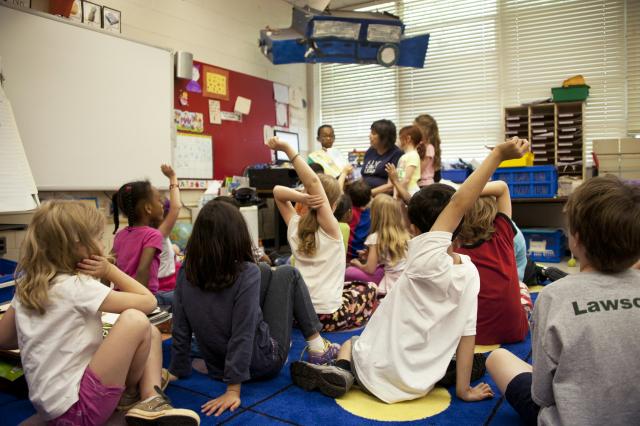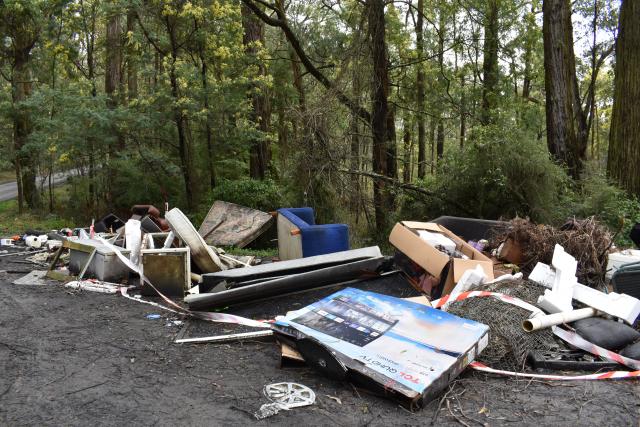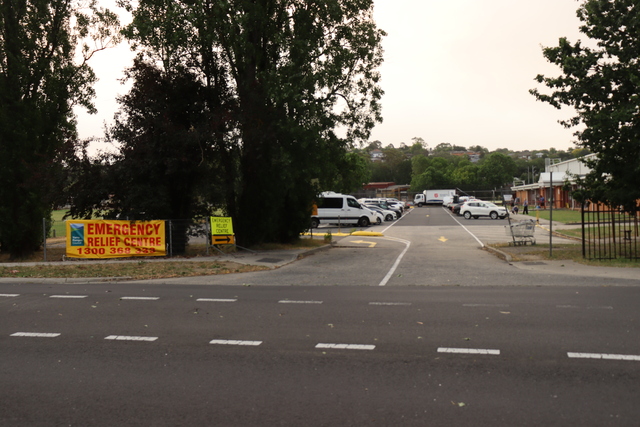How many of you remember your first day at school, your first separation from whoever cared for you for those first five years of your life? Perhaps your memories go back to a time when it was more the norm for mothers to be fulltime carers of their preschool children. It was then not uncommon to witness outside a school or classroom distressing scenes of tears, tantrums and clinging on to an equally distressed parent, tearfully pleading for the parent not to leave. Undoubtedly, this still happens and is probably happening today as the new school year begins in Victoria.
However, now most mothers work either through choice or necessity and children starting school today may have experienced from a very early age being cared for by someone other than a parent.
Beginning sometimes as early as six months, children progress from child care to kinder to preschool and finally school. This you would think would soften and temper the path to separation. Despite the increased enrolments in preschools and the amount of investment in this area, children are not necessarily, correspondingly better prepared for school. This is recognized by the practice of gradually easing the children into full day attendance.
The fact is that children are biologically wired to fear being separated from the grownups who have cared for them and with whom they feel safe. Other than just the parent this could also include a grandparent or a childcare person. So a degree of separation anxiety can be expected when starting school.
The law in Victoria states that children must attend school from the age of six. To enrol in a government school a child must turn 5 before 30th April of the year they start school. In Finland, regarded as the gold standard country in education, children typically start their formal education in primary school at seven. Before starting primary school, many children in Finland attend a year of voluntary pre-primary education with the emphasis on free play rather than learning literacy and numeracy skills. This pre-primary education aims to support children’s holistic development and emotional readiness for formal schooling.
Two poems address the emotions of that first day better than any commentary. Emerald poet, John Sheills in Line Up captures the dread of separation. Two friends cling to each other on that first day when confronted by the strangeness of the playground and especially its overwhelming size. Not understanding that now they are expected to do things in a different way, like staying in line and not ‘mill about that strange playground’ they wonder why some can easily stay in line. The teacher’s need for order, conformity, obedience and authority comes in one word: s.e.p.a.r.a.t.e. Perhaps pre-empting any possible future problems.
This poem appears as a personal reflection on the poet’s first day at school and captures that sense of being confronted by a new and frightening reality that has stayed with him all these years. The title suggests military like regimentation, so much a feature of schools in the past and indeed to some extent still present today.
British poet Roger McGough’s First Day at School is a poem written from the perspective of a small child facing school alone. This is immediately apparent by the nonsense word in the opening line: ‘million billionwillion miles from home’ spoken in the hyperbolic language that children love to use.
Once again the playground is intimidating, noisy and scarily enclosed by railings’. The poem is dominated by the child’s feelings of insecurity, his isolation from the rest of the children together with the fear of being in a new setting with strange buildings. The child has the impression that the school railings are meant to lock out monsters which must be quite terrifying to a child whose imagination and memories of stories such as Red Riding Hood bring to mind ‘wolves and monsters’. .At the same time the railings are there also to keep the children in.
In John Sheill’s poem the child has a friend to hold on to, in the McGough poem the child is alone and frightened by the surroundings to the point where he forgets his name and yearns for his mother’s presence. The child having been left alone longs for the mother as independence is just too much to handle at this point. And then the realisation that there is now a new adult in his life, ‘the tea – cher’. The poem not only explores the innocence and vulnerability of the child but also the child’s curiosity. Both poems address the fact that a small child can be overwhelmed.
If the thought of your child going off to school is filling you with a wave of emotions remember children are resilient, as long as the adults in their lives support this first step into an exciting but rapidly changing world which they will have to learn to adapt to. This first day at school is only the first of many steps to be taken.
First Day at School by Roger McGough
A millionbillionwillion miles from home
Waiting for the bell to go. (To go where?)
Why are they all so big, other children?
So noisy? So much at home they
Must have been born in uniform
Lived all their lives in playgrounds
Spent the years inventing games
That don’t let me in. Games
That are rough, that swallow you up.
And the railings.
All around, the railings.
Are they to keep out wolves and monsters?
Things that carry off and eat children?
Things you don’t take sweets from?
Perhaps they’re to stop us getting out
Running away from the lessins. Lessin.
What does a lessin look like?
Sounds small and slimy.
They keep them in the glassrooms.
Whole rooms made out of glass. Imagine.
I wish I could remember my name
Mummy said it would come in useful.
Like wellies. When there’s puddles.
Yellowwellies. I wish she was here.
I think my name is sewn on somewhere
Perhaps the teacher will read it for me.
Tea-cher. The one who makes the tea.
LINE-UP by John Sheils
First day at school.
Familiar friend you
held my hand
so I too did not have
to run away from
that newly shared experience.
There we stood
not meaning to
spoil the line-up
for going out to
mill about that
strange playground.
Others followed on
all nicely in line
behind (how come
they already knew
about such stuff?)
Nearby, a teacher lady
with long dark hair
said – “Why, here’s
a pretty pair. We need
to separate the two of
you.”
S – e – p – a – r – a – t – e
It’s such a big word
to parade about
a little person’s
world.







